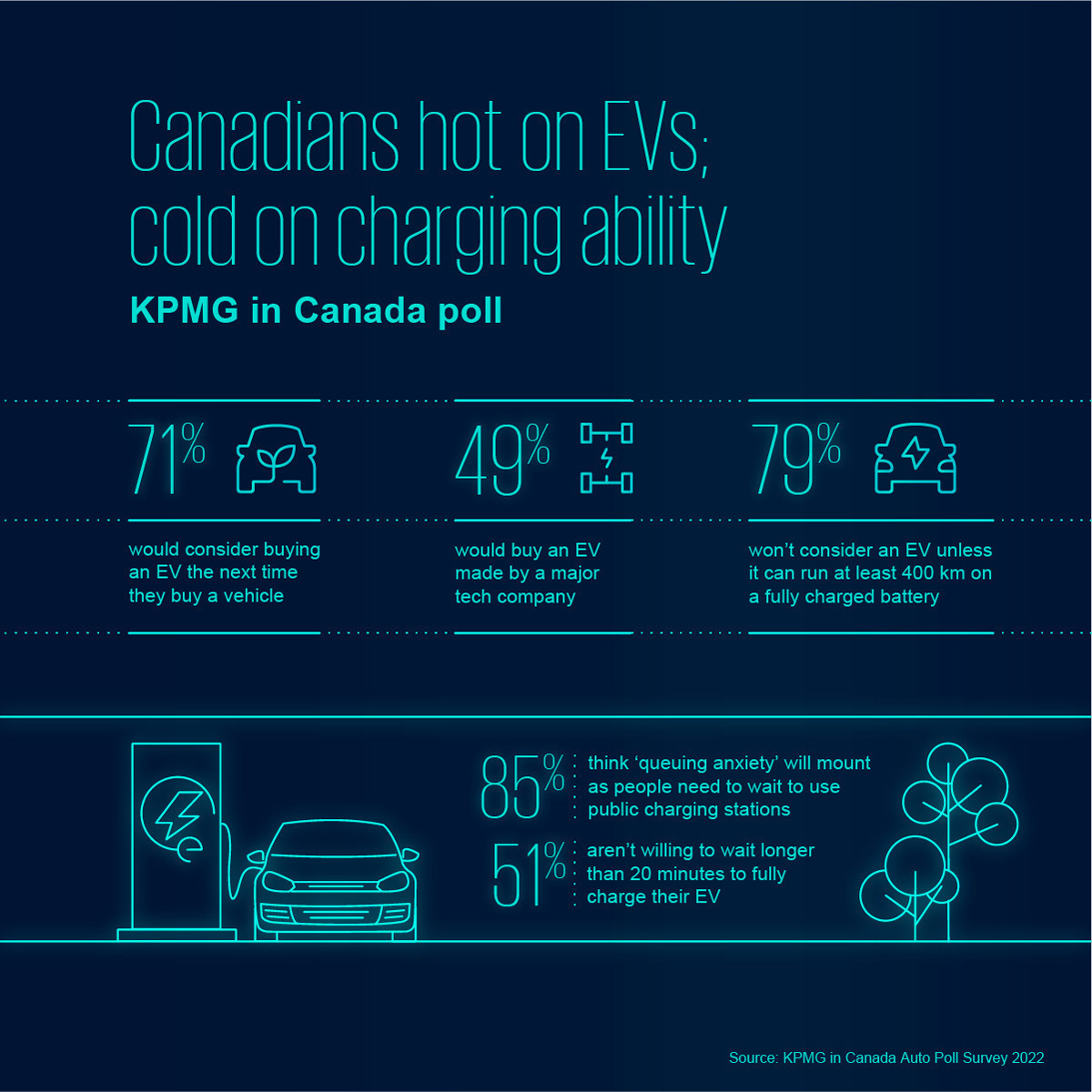Canadian EV Purchase Intentions Decline For Third Year Running

Table of Contents
Rising Costs and Inflationary Pressures
Rising prices of EVs, especially compared to gasoline-powered vehicles, are a significant barrier to adoption. Inflationary pressures are further exacerbating this issue, making large purchases like EVs less affordable for many Canadian households. The cost of ownership is a major factor influencing Canadian EV purchase intentions.
- Increased battery costs: The cost of lithium-ion batteries, a crucial component of EVs, has increased significantly due to supply chain disruptions and rising raw material prices. This directly impacts the overall price of the vehicle.
- Supply chain disruptions: Global supply chain issues continue to affect vehicle production, leading to longer wait times and higher prices for both EVs and gasoline cars. However, the impact is often more pronounced for EVs due to the specialized components involved.
- Higher interest rates: Increased interest rates make financing an EV more expensive, further adding to the overall cost of ownership and impacting affordability for potential buyers. This is particularly true for longer-term loans.
These factors contribute to the reduced affordability of EVs in Canada, making them less attractive to consumers who are already feeling the pinch of inflation. Understanding the impact of EV price increases and inflation on EV sales is crucial for policymakers and the automotive industry.
Range Anxiety and Charging Infrastructure Gaps
Concerns about limited driving range and the availability of public charging stations remain significant obstacles for many potential EV buyers. Range anxiety, the fear of running out of battery power before reaching a charging station, is a major deterrent, particularly for those living in areas with limited charging infrastructure. The lack of a robust and widespread charging network across Canada directly impacts Canadian EV purchase intentions.
- Insufficient fast-charging stations along major highways: The density of fast-charging stations, crucial for long-distance travel, is still insufficient, particularly along major highways and in rural areas.
- Uneven distribution of charging stations across provinces: Access to charging infrastructure varies significantly across different provinces and territories, creating disparities in EV adoption rates.
- Concerns about charging times and accessibility: The time required to charge an EV, even at a fast-charging station, can be a deterrent, and the accessibility of charging stations, especially for those with disabilities, remains a concern.
Improving the EV charging network in Canada is crucial for addressing range anxiety and boosting consumer confidence in electric vehicles. The development of a reliable and accessible EV charging infrastructure is key to increasing Canadian EV purchase intentions.
Government Incentive Changes and Their Impact
Changes to federal and provincial incentives have arguably lessened the attractiveness of EV purchases for some Canadians. The impact of phasing out or modifying certain rebates requires careful analysis. The fluctuating nature of government support impacts the decision-making process of potential buyers.
- Reduced incentive amounts compared to previous years: In some cases, the amount of financial support offered has decreased, reducing the incentive to purchase an EV.
- Changes in eligibility criteria for rebates and subsidies: Modifications to eligibility criteria can exclude certain vehicles or buyers, making EVs less accessible to a wider range of consumers.
- Varying incentive programs across different provinces: The inconsistent nature of incentive programs across different provinces creates confusion and makes it difficult for consumers to compare options.
A clear and consistent approach to government incentives is needed to support the transition to EVs and stimulate Canadian EV purchase intentions. Understanding Canadian EV incentives and their impact on the market is key to fostering sustainable growth in the EV sector.
Consumer Perceptions and Lack of Awareness
Misconceptions about EV technology, maintenance, and long-term costs contribute to consumer hesitancy. A significant lack of consumer education and awareness regarding the overall benefits of EVs needs to be addressed. Addressing these misconceptions is crucial for boosting Canadian EV purchase intentions.
- Perceived complexity of EV technology: Some consumers perceive EV technology as complex and intimidating, leading to apprehension about ownership and maintenance.
- Concerns about battery lifespan and replacement costs: Concerns about the lifespan of EV batteries and the high cost of replacement are common deterrents. Clearer information regarding battery warranties and maintenance options can allay these concerns.
- Limited understanding of available government incentives: Many potential buyers are unaware of the various government incentives and rebates available for EV purchases, hindering their decision-making process.
Improving consumer education and addressing misconceptions surrounding EVs is crucial for stimulating increased Canadian EV purchase intentions. Targeted campaigns and clear information resources can help overcome these barriers and promote wider adoption.
Conclusion
The decline in Canadian EV purchase intentions for a third consecutive year underscores a complex interplay of factors, including rising costs, range anxiety, evolving government incentives, and persistent consumer misconceptions. Addressing these challenges requires a multifaceted approach, including government policy adjustments, improvements to charging infrastructure, enhanced consumer education, and continued technological advancements to make EVs more accessible and affordable. It’s vital to reignite interest in Canadian EV purchases to meet Canada's climate targets. Understanding the reasons behind this decline is the first step towards reversing this trend and ensuring a sustainable future for electric vehicle adoption in Canada. Learn more about the current state of Canadian EV adoption and explore potential solutions by researching the latest industry reports and government initiatives related to Canadian EV purchase intentions.

Featured Posts
-
 The Perfect Couple Season 2 New Cast And Source Material Unveiled
Apr 27, 2025
The Perfect Couple Season 2 New Cast And Source Material Unveiled
Apr 27, 2025 -
 Mubadala Abu Dhabi Open Rybakina Wins In Dramatic Three Set Battle Against Jabeur
Apr 27, 2025
Mubadala Abu Dhabi Open Rybakina Wins In Dramatic Three Set Battle Against Jabeur
Apr 27, 2025 -
 Trump And The Vatican Analyzing His Appearance At Pope Benedicts Funeral
Apr 27, 2025
Trump And The Vatican Analyzing His Appearance At Pope Benedicts Funeral
Apr 27, 2025 -
 Lifting The Farm Import Ban Key Outcomes Of South Africa Tanzania Discussions
Apr 27, 2025
Lifting The Farm Import Ban Key Outcomes Of South Africa Tanzania Discussions
Apr 27, 2025 -
 Ariana Grandes Dramatic Hair And Tattoo Debut A Look At Her Styling Team
Apr 27, 2025
Ariana Grandes Dramatic Hair And Tattoo Debut A Look At Her Styling Team
Apr 27, 2025
